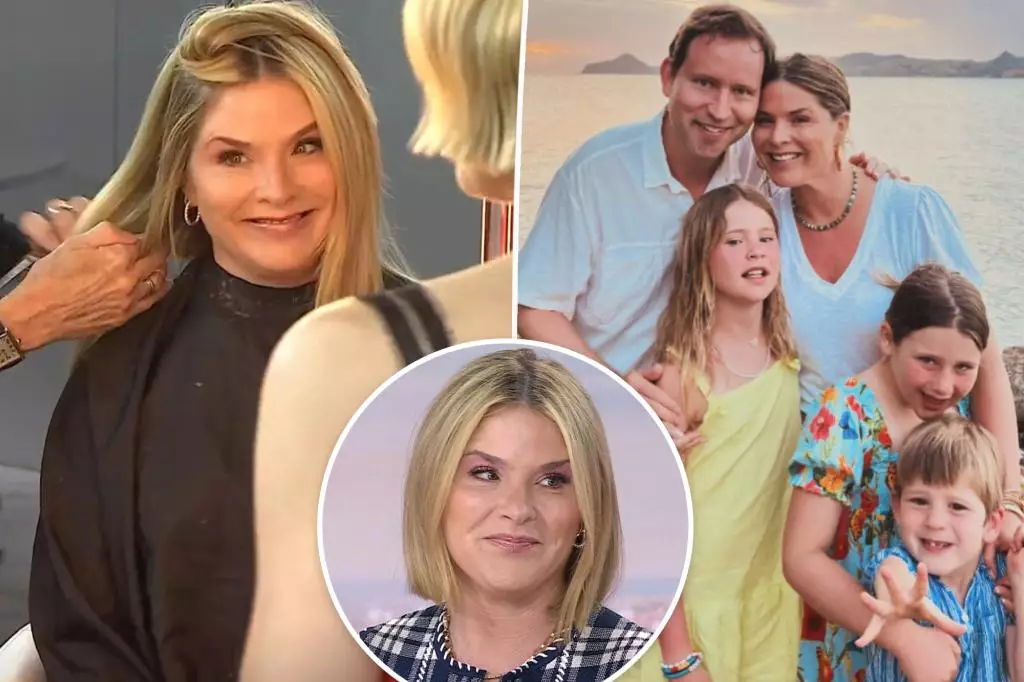Jenna Bush Hager recently found herself in the hot seat following a dramatic haircut that she showcased live on NBC’s “Today” show. While many viewers might have applauded her audacity, her most honest critics were none other than her children. In a raw and unfiltered reaction, Jenna’s 9-year-old daughter, Poppy, bluntly questioned her decision with, “What are you doing?” This moment captures the candidness often absent in staged media appearances, shedding light on the genuine and sometimes harsh perspectives children have regarding parental choices.
Adding to the disapproval, her older daughter Mila, 12, along with her younger sibling, echoed sentiments of distaste, leading to a tumultuous session of family reactions. This incident serves as a reminder that while transformations can be liberating for adults, especially celebrities, they can also disarmingly unsettle their children. In a world aspiring for individuality and self-expression, the bond between parenting and embracing new looks can be a minefield.
A Spontaneous Artistic Connection
Later that week, the mutual disapproval was brought to light during a lighthearted conversation with actress Leslie Bibb, who inspired Jenna’s haircut through her character in the HBO series “White Lotus.” With humor, Bibb labeled Jenna’s kids as “monsters” for their emotional reactions. Interestingly, Jenna herself acknowledged that the children’s tears might have been an exaggerated show of affection—an interesting facet of family dynamics that indicates how emotional expression can manifest uniquely within different environments.
Family humor aside, this playful banter reveals a deeper truth about social norms surrounding appearance. In an age where individuality is celebrated, and haircuts often play a significant role in self-identity, it’s important to balance personal choices with those closest to us, who might not always understand the artistic choices adults make.
A Supportive Partner Amidst Criticism
Fortunately for Jenna, her husband, Henry Hager, offered different feedback, affirming his wife’s decision and pointing out that her children might lack fashion sense. His defense of her transformation showcases a supportive partnership, vital in navigating family life within the public eye. This contrast between the children’s reactions and Henry’s praise encapsulates the complexity of blending personal transformation with familial relationships.
While Jenna’s hair may have sparked waves of initial criticism, it’s essential to recognize the spirit of adventure it embodies. Styled by renowned hairstylist Chris McMillan, the haircut was intended as a transitional “earlobe bob,” crafted to pay homage to iconic figures such as Patricia Arquette. This artistic endeavor reflects current trends, and with the summer months approaching, it poses the question: is this new style merely a fleeting trend, or the start of a chic summer renaissance?
Ultimately, Jenna not only initiated a conversation about personal transformation but also highlighted the importance of family dynamics in the face of change. Her experience sheds light on how personal choices—especially those that may seem trivial—can spark substantial discussions, influence perceptions, and serve as a testament to the balance between self-expression and familial bonds.

